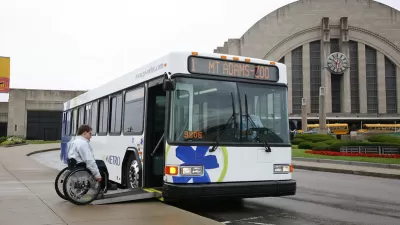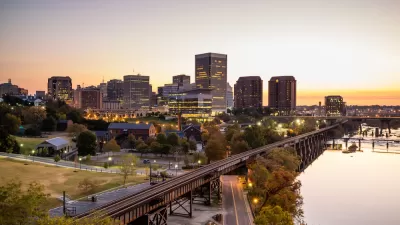A 3-2 vote determined that Whidbey Island, north of Seattle, will continue to offer rides for free.
Public comments showed concerns about falling ridership, a concern echoed in the Board's own research. "Island Transit projected an initial ridership loss of 30 to 40 percent with levels returning to current ridership in three to five years," Jessie Stensland reports for the South Whidbey Register.
Those in favor of the notion pointed to shrinking budgets forcing the agency to cut staff and service. Rising gas prices would further stretch the budget. Council Member Price Johnson argued that the funds from fares wouldn't go far to cover those shortfalls. "She pointed out that projections show that fares would generate about $200,000 a year, require $300,000 in one-time costs to implement and have over $100,000 in yearly costs. Under the best-case scenario, fares would account for only 2 percent of the annual budget after three years," Stensland writes.
FULL STORY: Island Transit board votes down bus fares

Planetizen Federal Action Tracker
A weekly monitor of how Trump’s orders and actions are impacting planners and planning in America.

Maui's Vacation Rental Debate Turns Ugly
Verbal attacks, misinformation campaigns and fistfights plague a high-stakes debate to convert thousands of vacation rentals into long-term housing.

San Francisco Suspends Traffic Calming Amidst Record Deaths
Citing “a challenging fiscal landscape,” the city will cease the program on the heels of 42 traffic deaths, including 24 pedestrians.

Amtrak Rolls Out New Orleans to Alabama “Mardi Gras” Train
The new service will operate morning and evening departures between Mobile and New Orleans.

The Subversive Car-Free Guide to Trump's Great American Road Trip
Car-free ways to access Chicagoland’s best tourist attractions.

San Antonio and Austin are Fusing Into one Massive Megaregion
The region spanning the two central Texas cities is growing fast, posing challenges for local infrastructure and water supplies.
Urban Design for Planners 1: Software Tools
This six-course series explores essential urban design concepts using open source software and equips planners with the tools they need to participate fully in the urban design process.
Planning for Universal Design
Learn the tools for implementing Universal Design in planning regulations.
Heyer Gruel & Associates PA
JM Goldson LLC
Custer County Colorado
City of Camden Redevelopment Agency
City of Astoria
Transportation Research & Education Center (TREC) at Portland State University
Jefferson Parish Government
Camden Redevelopment Agency
City of Claremont





























